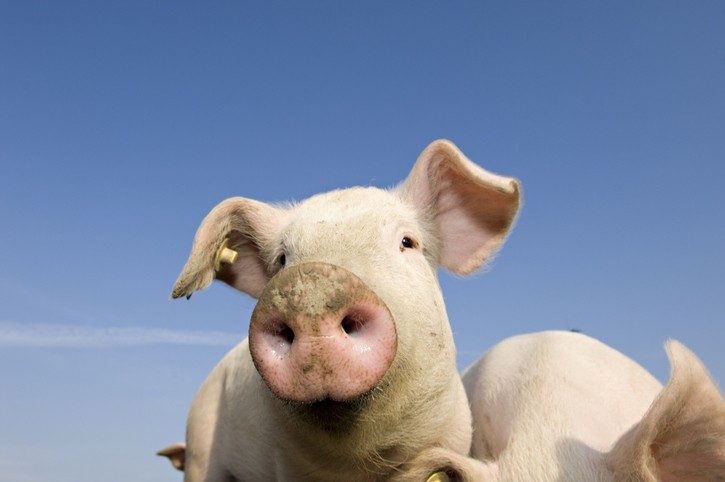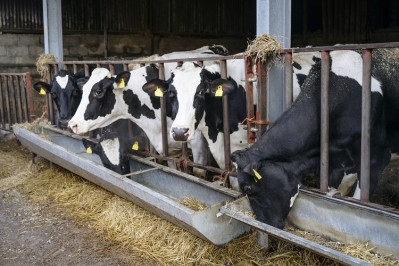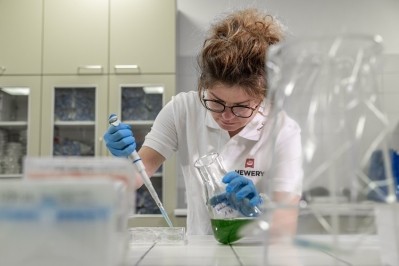‘We want happy pigs’… welfare and health outweigh climate concerns for consumers

Pork production is a societal concern on several fronts: antibiotics use, infectious disease, poor animal welfare and climate and environmental pressures.
But are consumers willing to fork over extra cash for a more climate-friendly pork roast? Or, are there other considerations that would increase their willingness to pay more? And if so, how much of a premium would you be willing to pay?
Researchers from the University of Copenhagen’s Department of Food and Resource Economics investigated this in a new study with respondents from Denmark, Germany, the UK and Shanghai, China. Roughly 1,500 people from each country participated. They were asked to prioritise from among five dimensions of sustainability: animal welfare; climate footprint; use of antibiotics; food security and rainforest protection.
Three out of four respondents in Denmark, Germany and China, and around 60% of the British respondents would be willing to pay more for pork that is 'improved' in terms of better animal welfare, lower climate impact, decreased use of antibiotics use, guaranteed freedom from harmful bacteria, and animals that are not fed soy.
But some issues are more important than others for European consumers. There is one clear priority when they are asked to choose where they would prefer their added expense going to: improved animal welfare.
"The answers clearly demonstrate that focusing solely on climate improvements in pork production is not what consumers care most about when buying pork,” said Professor Peter Sandøe, the study’s senior author. “They see it as important that pigs have had a good life, and that this is more important than climate-friendly production. This applies to many consumers in Denmark, Germany and the UK."
Among German consumers, climate considerations scored lowest out of the five different types of improvements prioritized by the respondents. Danish, British and Chinese respondents placed climate impact at second lowest.
"In light of how much climate has occupied public debate in recent years, we were surprised that bringing down the climate footprint was given such a relatively low priority among consumers," added Associate Professor and co-author Thomas Bøker Lund.
He claimed one argument in particular is repeated among participants in relation to this priority.
During one of the qualitative interviews included in the study, a British respondent stated:
"I know Greta Thunberg is not going to like me for putting the climate further down the list, but I want happy pigs. I don't like the idea of them being miserable and crammed together. I think there are other ways in which to help the climate issue."
“If one is out there as a consumer and buying a piece of meat for dinner, you feel that you have the ability to do something for the individual pig and its welfare. But when it comes to the piece of meat’s climate impact, the connection is less clear. Many consumers do not think that they can make a real difference for the climate through their pork purchase behavior, and many prefer to do something for the climate in other ways."
Europe vs China
While the participants in the three European countries who were willing to pay more for pork all prioritised animal welfare most highly, Chinese participants prioritised food safety above all else. That the meat is guaranteed to be free of potentially harmful bacteria scored highest, whereas the meat’s climate footprint was the next to last priority. Participants from all four countries agreed that animal welfare is more important than the meat’s climate footprint.
What about human health?
Human health is another one of these competing sustainability goals
In a separate study, a team of researchers from the Department of Agricultural and Food Market Research at the University of Bonn have now found that consumers would rather pay more for salami with an “antibiotic-free” label than for salami with an “open barn” label that indicates that the product promotes animal welfare. The results have now been published in the journal “Q Open.”
The animal husbandry sector faces a complex set of challenges as a result of various competing interests, noted the researchers. “Sustainability goals such as animal welfare, environmental protection and human health can quickly conflict with one another,” said Jeanette Klink-Lehmann from the Department of Agricultural and Food Market Research at the Institute for Food and Resource Economics at the University of Bonn.
At the same time, stricter standards in animal husbandry could have an impact on competitiveness because it is not always possible to compensate for any associated increases in costs with higher consumer prices. This can threaten the viability of family-run farms and also impact rural communities. “In order to develop appropriate policy conditions, it is vital to investigate and clarify these conflicts in the sustainability debate,” added Prof. Monika Hartmann, Head of the Department of Agricultural and Food Market Research at the University of Bonn. “The results show that personal health is more important to people than animal welfare,”
The study also demonstrated that animal welfare considerations were more important to people than environmental protection. Furthermore, the results demonstrate that people’s willingness to choose a more sustainable alternative is highly dependent on the price.
References
Willingness-to-pay for reduced carbon footprint and other sustainability concerns relating to pork production – A comparison of consumers in China, Denmark, Germany and the UK
Livestock Science
DOI: 10.1016/j.livsci.2023.105337
Environmentally friendly agricultural practices suitable for local conditions
Q Open
DOI: https://doi.org/10.1093/qopen/qoad025















